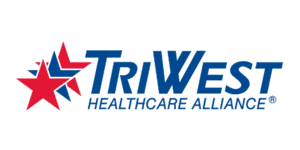Apex Addiction Recovery Center operates multiple rehabilitation centers across Tennessee, providing comprehensive addiction treatment services. With a focus on holistic care and personalized recovery plans, we offer support for various substance dependencies, including alcohol. Our facilities are equipped with experienced staff and modern amenities to guide you toward lasting sobriety and wellness within a supportive environment.
At Apex, people struggling with substance abuse, mental health disorders, or dual diagnoses find specialized alcohol rehab treatment. Through tailored programs and expert care, Apex Alcohol and Drug Addiction Recovery Center tackles complexities of addiction and co-occurring conditions. Our holistic recovery approach fosters healing and inspires clients to achieve lasting wellbeing and mental health. Call (877) 881 2689 to find out more about our alcohol use disorder treatment programs in Tennessee.
What is an Alcohol Addiction Treatment Program?
A Tennessee alcohol addiction treatment program is a structured regimen designed to address the physical, psychological, and social aspects of alcohol addiction. These programs typically offer a combination of therapies, counseling, medical support, and holistic approaches to help people overcome their dependence on alcohol.
Alcoholism treatment may include detoxification to safely manage withdrawal symptoms, followed by various therapies such as cognitive-behavioral therapy (CBT), motivational interviewing, and family therapy. Additionally, medication may be prescribed to alleviate cravings and support recovery. The goal of an alcohol addiction treatment program is to empower patients to achieve sobriety, improve overall well-being, and develop strategies for long-term recovery and relapse prevention.

Learning About Alcohol Use Disorder (AUD)?
Alcohol Use Disorder (AUD) is a chronic condition described as an inability to control alcohol consumption despite negative effects. Symptoms range from craving alcohol to physical dependence, with varying severity. AUD can impair relationships, work, and health. Treatment often involves therapy, alcohol addiction medication, and support groups, aiming for long-term recovery.
Understanding AUD involves recognizing its complexities, such as genetic, environmental, and psychological factors contributing to its development. Education about AUD is crucial for prevention and early intervention, promoting awareness of its impact and available recovery resources for those affected.
The Popular Towns, Cities, and Sites of the Volunteer State
Tennessee, known as the Volunteer State, has a wealth of towns, cities, and sites that beckon visitors. Nashville, the vibrant capital, pulsates with country music and culture like the Grand Ole Opry, while Memphis offers a taste of blues and BBQ. Chattanooga’s outdoor adventures and the Great Smoky Mountains’ natural splendor draw nature enthusiasts.
Historic sites like the Civil War battlegrounds at Shiloh and the Hermitage, Andrew Jackson’s home, offer glimpses into the state’s past. From the lively streets of Knoxville to the quaint charm of Gatlinburg, Tennessee’s diverse destinations – including Dollywood and Elvis Presley’s Graceland – promise unforgettable experiences steeped in Southern hospitality and heritage.
Statistics on Alcoholism in Middle Tennessee
Annually, Tennessee witnesses an average of 3,359 alcohol-related deaths. Alarmingly, 2.95% of these fatalities occur among individuals under 21. Furthermore, 15.7% of Tennessee adults over 18 engage in binge drinking at least once per month, with a median of 1.7 binge episodes. However, the most active drinkers, constituting 25%, binge drink approximately 4.4 times monthly.
The repercussions of excessive alcohol use extend to taxpayer burdens, with an inflation-adjusted $6.323 billion spent in Tennessee in 2022 alone. Moreover, 18.1% of Tennessee residents and 20.1% of Nashville-area residents engaged in binge drinking in the past month. Nationally, AUD affects 17.4 million males, 12.2 million females, 3.6 million Black or African American individuals, 18.6 million White individuals, and 5.5 million Hispanic or Latino individuals aged 12 and older.
The Role of Alcohol in Social Acceptance
The social acceptability of alcohol often leads people to believe that anyone who drinks it must always have control over their alcohol consumption. However, this assumption is misguided, as the relationship between alcohol consumption and alcohol use disorder is more complex.
While many individuals drink for the immediate and obvious social and physical benefits, it’s important to recognize that some individuals may turn to alcohol as a coping mechanism for anxiety, depression, and trauma. This connection between alcohol and emotional struggles serves as a warning sign that a drinking problem may exist, highlighting the need for further understanding and support.
The repercussions of excessive alcohol use extend to taxpayer burdens, with an inflation-adjusted $6.323 billion spent in Tennessee in 2022 alone. Moreover, 18.1% of Tennessee residents and 20.1% of Nashville-area residents engaged in binge drinking in the past month. Nationally, AUD affects 17.4 million males, 12.2 million females, 3.6 million Black or African American individuals, 18.6 million White individuals, and 5.5 million Hispanic or Latino individuals aged 12 and older.










Contact Apex Recovery Tennessee to check your insurance coverage levels and discuss your alcohol addiction treatment needs.
Does Health Insurance Cover Alcohol Addiction Rehab in Tennessee?
Health insurance coverage for alcohol addiction rehab in Tennessee varies depending on individual policies and the specific treatment center. Many insurance plans offer some level of coverage for addiction treatment, including detox, residential programs, and outpatient therapy. Coverage may include services such as assessments, counseling, medication management, and aftercare support.
However, the extent of coverage, including deductibles, copayments, and limitations, differs among insurance providers and policies. It’s crucial for you to review your insurance plan details, contact us at Apex Drug and Alcohol Addiction Recovery Center, and inquire about coverage options for alcohol addiction rehab to understand your financial responsibilities and access available treatment resources.
Alcohol Addiction Treatment Programs in Tennessee
With multiple alcohol rehab facilities across the state, including Apex Recovery Brentwood and Apex Recovery Columbia, we provide comprehensive addiction rehabilitation services customized to your needs.
- Apex Recovery Brentwood: 209 Ward Circle, Brentwood TN, 37027
- Apex Recovery Columbia: 2710 Trotwood Ave STE A & B Columbia, TN 38401
Fill in the form below to request a call back from Apex Recovery Tennessee
What Are the Health Insurance Providers That Offer Coverage for Alcohol Use Disorder Rehab?
Several major health insurance providers offer coverage for alcohol use disorder (AUD) rehab in Tennessee, including Blue Cross Blue Shield (BCBS), Aetna, Cigna, UnitedHealthcare, Humana, and more. These providers often include addiction treatment services as part of their behavioral health coverage, which may include various levels of care such as detoxification, residential treatment, outpatient therapy, and medication management.
However, coverage details and network providers may vary depending on the specific plan and policy. Individuals seeking AUD rehab should reach out to Apex Substance Addiction Recovery Center to inquire about coverage options and network facilities to access the most suitable treatment resources.

How Much Does Alcohol Rehab Cost in Tennessee Without Health Insurance?
On average, outpatient programs may range from $3,000 to $10,000 for a three-month program, while residential programs can cost anywhere from $10,000 to $30,000 for a 30-day stay. The cost of alcohol treatment programs in Middle Tennessee without health insurance coverage can vary significantly depending on several factors.
Factors such as the facility’s amenities, location, level of care, and additional services provided can also impact the overall treatment of alcohol cost. It’s essential for people to inquire about payment options, financing, and sliding scale fees offered by treatment centers – like Apex – to access affordable care.

Check Your Insurance
Apex Recovery Tennessee is in-network and accepts most major health insurance plans to make alcohol rehab treatment more accessible. Contact us today to check your coverage!
Can You Tell if Someone is Addicted to Alcohol?
Identifying alcohol addiction can be challenging, as people may conceal their struggles or deny the severity of their condition. However, several signs and symptoms may indicate a potential alcohol addiction. These can include increased tolerance to alcohol, leading to the need for higher quantities to achieve the desired effect.
Withdrawal symptoms, such as tremors, sweating, and anxiety when not drinking, are also common indicators of alcohol dependence. Additionally, spending a significant amount of time obtaining, using, or recovering from alcohol consumption, and neglecting responsibilities or social activities in favor of drinking, may suggest a problem.
Physical manifestations of alcohol addiction can include frequent blackouts or memory lapses, chronic health issues such as liver disease or pancreatitis, and noticeable changes in appearance, such as weight loss or deteriorating hygiene. Psychological symptoms may include mood swings, irritability, depression, or anxiety, often exacerbated by alcohol use. Financial problems, legal issues related to alcohol use (such as DUI charges), and strained relationships with friends or family members due to alcohol-related behaviors are also common signs of addiction.
If you suspect that someone you know is struggling with alcohol addiction, it’s crucial to approach the situation with empathy and offer support and encouragement for seeking professional help.
When Does Alcohol Use Turn Into Alcohol Abuse?
Regular consumption of alcohol, even in moderate amounts, can gradually lead to alcohol abuse and its detrimental effects. It is important to be aware that exceeding recommended limits can have significant consequences on a person’s brain chemistry.
When individuals consume more than one serving per hour or surpass four drinks per day for men and three drinks per day for women, their brain chemistry is altered. This alteration can interfere with the brain’s normal processes, impacting various aspects such as judgment, impulse control, mood, and decision-making abilities.
Additionally, frequent alcohol use can cultivate dependencies on the substance, resulting in difficulties controlling alcohol intake. Therefore, it is crucial to recognize the potential long-term consequences of alcohol misuse and to make informed choices regarding its consumption.
What Are Different Types of Alcohol Addiction Treatment Programs in Tennessee?
Various alcohol addiction treatment programs in Tennessee cater to diverse needs. Options include Partial Hospitalization Programs (PHP) providing intensive support, Intensive Outpatient Programs (IOP) offering structured therapy, Residential Programs for immersive care, and specialized alcohol detox treatment ensuring safe withdrawal. Each program offers unique benefits tailored to people seeking recovery from Alcohol Use Disorder (AUD).
Partial Hospitalization Programs (PHP) for AUD Rehab
Partial Hospitalization Programs (PHP) offer comprehensive support for Alcohol Use Disorder (AUD) recovery in Tennessee. Designed for people requiring intensive treatment, PHPs provide structured therapy and medical supervision while allowing patients to return home at night. With a focus on counseling, medication management, and skill-building, PHPs empower participants to navigate the challenges of alcohol addiction and withdrawal and achieve lasting sobriety.
Intensive Outpatient Program (IOP) for AUD Rehab
The Intensive Outpatient Program (IOP) for Alcohol Use Disorder (AUD) rehab in Tennessee provides flexible treatment options for people needing structured support while maintaining daily responsibilities. With focused therapy sessions and skill-building activities, IOPs empower participants to address the complexities of AUD while integrating recovery strategies into their everyday lives. This program offers comprehensive care and guidance towards lasting sobriety.
Residential Program for AUD Rehab
The Residential Program for Alcohol Use Disorder (AUD) rehab offers immersive, 24/7 care in a supportive environment. Participants reside onsite and engage in a structured program tailored to their needs, including therapy, counseling, and skill-building activities. With round-the-clock supervision and a focus on holistic healing, residential programs provide a nurturing space for people to embark on their journey to recovery.
Detox Treatment for AUD
Detox treatment for Alcohol Use Disorder (AUD) focuses on safely managing withdrawal symptoms while preparing people for ongoing recovery. Under medical supervision, participants receive support and medication to alleviate discomfort and ensure a smooth transition to sobriety. Detox treatment sets the foundation for further rehabilitation, addressing the physical aspect of AUD with compassionate care and expertise.
6 Benefits of Alcohol Addiction Treatment
1. An Easier Detox
Medical supervision during the detox process can make the experience smoother and more comfortable for those recovering from alcohol addiction.
2. Improved Physical Health
Alcohol addiction can impact a person’s physical health, including increased risk of liver disease, cancer, and brain damage, among other illnesses.
3. Better Mental Health
Alcohol addiction treatment centers also offer therapy or counseling sessions that help individuals work on their mental health problems.
4. Safety
By taking advantage of professional help, individuals who are struggling with alcohol abuse are better set up to avoid hurting themselves or others.
5. A Sense of Community
Alcohol addiction treatment programs bring people together in a supportive atmosphere to learn and share their experiences with others.
6. Reduced Risk of Relapse
Alcohol addiction treatment programs equip individuals with the tools and skills they need to maintain long-term recovery effectively.
Apex Recovery Tennessee offers free drug and alcohol addiction assessments as part of the rehab treatment admissions process. Contact us to learn more.
What Are Different Types of Alcohol Addiction Treatment Medications?
Several medications aid in alcohol addiction treatment by reducing cravings, preventing relapse, and promoting sobriety. Disulfiram works by causing unpleasant reactions (such as nausea and vomiting) when alcohol is consumed, acting as a deterrent. Acamprosate helps restore chemical balance in the brain, reducing alcohol cravings and withdrawal symptoms.
Naltrexone blocks opioid receptors, reducing the enjoyable effects of alcohol and decreasing cravings. These medications are often used in conjunction with therapy and counseling to support comprehensive recovery from alcohol addiction. You should consult a healthcare professional to determine the most suitable medication and treatment plan based on your needs and medical history.
Are There Withdrawal Symptoms from Alcohol?
Withdrawal symptoms from alcohol can range from mild discomfort to severe complications, depending on the person’s level of dependence and history of alcohol use. Common withdrawal symptoms include tremors, sweating, nausea, and vomiting. Headaches, insomnia, and agitation are other experiences during alcohol withdrawal. People may experience anxiety, irritability, and mood swings as their body adjusts to the absence of alcohol.
More severe withdrawal symptoms can include hallucinations, delirium tremens (DTs), and seizures. Delirium tremens is a severe form of alcohol withdrawal characterized by confusion, disorientation, rapid heartbeat, and hallucinations. Seizures may occur within the first 48 hours after cessation of alcohol intake and can be life-threatening if left untreated.
Other physical symptoms of alcohol withdrawal may include increased blood pressure, rapid heartbeat, and fever. Individuals may also experience gastrointestinal issues such as stomach pain, diarrhea, and appetite loss. Seeking professional help from healthcare providers experienced in managing alcohol withdrawal can ensure safe and effective treatment while minimizing the risk of complications.
Are There Free Assessments and Testing for AUD in Middle Tennessee
In Middle Tennessee, people seeking assistance for Alcohol Use Disorder (AUD) can access free assessments and testing through Apex Recovery as part of our admissions process. This complimentary service provides people with a comprehensive evaluation of their alcohol use and related concerns, helping to determine the most appropriate treatment plan.
With a focus on personalized care and support, Apex Recovery offers this valuable resource to assist people in their journey towards recovery from AUD. By providing free assessments and testing, Apex aims to remove barriers to treatment and ensure that you receive the support you need to achieve sobriety and wellness.
How To Find an Alcohol Addiction Rehab Facility Near Me
Here’s a step-by-step approach to locating a Tennessee rehab for alcohol addiction nearby:
- Evaluate Your Needs: Determine if you require inpatient rehab or outpatient treatment and any specific preferences like holistic approaches or dual diagnosis treatment.
- Utilize Online Searches: Use search engines with terms such as “alcohol rehab near me” or ” alcohol addiction treatment centers in Tennessee.”
- Explore Online Directories: Look into specialized directories like SAMHSA (Substance Abuse and Mental Health Services Administration) or the National Helpline for listings of rehab facilities.
- Review Insurance Coverage: Check your health insurance to identify in-network facilities and contact your provider for a list of covered centers.
- Confirm Accreditation: Ensure the recovery facility holds proper accreditation and licensing, verified through organizations like CARF (Commission on Accreditation of Rehabilitation Facilities) or The Joint Commission.
- Read Testimonials: Seek out reviews from former patients or their families on platforms like Google, Yelp, or healthcare review sites.
- Reach Out to Facilities: Contact potential centers directly to inquire about recovery programs, substance abuse treatment methods, staff qualifications, and aftercare programs and options.
- Schedule a Visit: If feasible, arrange a visit to the facility to assess the environment and meet the staff firsthand, helping you make an informed decision.
Tennessee Rehabilitation Process for Alcohol Addiction Treatment
The rehabilitation process for alcohol addiction treatment follows a comprehensive approach aimed at addressing the physical, psychological, and social aspects of addiction. People seeking treatment typically undergo a structured program. Here’s an overview of the rehabilitation process for alcohol addiction treatment in Tennessee:
- Assessment and Evaluation: Upon entering a rehabilitation program, individuals undergo a thorough assessment to determine the severity of their alcohol addiction and any co-occurring conditions, helping healthcare professionals develop a personalized treatment plan.
- Detoxification: For people with a physical dependence on alcohol, detoxification is often the first step in the rehabilitation process. Medical supervision and support are provided to manage withdrawal symptoms safely and comfortably.
- Therapy and Counseling: Rehabilitation programs in Tennessee offer various forms of therapy, including individual counseling, group therapy, and family therapy. These sessions help people explore the root causes of their addiction, develop coping skills, and address underlying issues contributing to their alcohol use.
- Medication-Assisted Treatment (MAT): Some patients may benefit from medication-assisted treatment to manage cravings and reduce the risk of relapse. Medications such as disulfiram, acamprosate, and naltrexone may be prescribed as part of a comprehensive treatment plan.
- Aftercare Planning: As people progress through rehabilitation, aftercare planning becomes an essential component of their treatment. This may include ongoing therapy, participation in support groups such as Alcoholics Anonymous (AA), and access to community resources to support long-term recovery.
- Holistic Approaches: Many rehabilitation programs in Tennessee incorporate holistic approaches to alcohol addiction treatment, such as mindfulness techniques, yoga, art therapy, and recreational activities. These complementary therapies promote overall well-being and enhance the effectiveness of traditional treatment methods.
More Info and Stats on Alcohol Use Disorder (AUD) in Tennessee
- There is an average of 3,359 alcohol-related deaths in Tennessee annually
- 2.95% of those deaths are people under 21
- 15.7% of Tennessee adults over 18 binge drink at least once per month.
- Binge drinking adults in Tennessee binge a median 1.7 times monthly; the 25% most active drinkers binge 4.4 times per month.
- Tennessee taxpayers spent an inflation-adjusted $6.323 billion as a result of excessive alcohol use in 2022
- 18.1% of Tennessee residents binge-drank on a past-month basis
- 20.1% of Nashville-are residents binge-drank on a past-month basis
- 17.4 million males ages 12 and older had AUD in the U.S.
- 12.2 million females ages 12 and older had AUD in the U.S.
- 3.6 million Black or African American people ages 12 and older had AUD
- 18.6 million White people ages 12 and older had AUD
- 5.5 million Hispanic or Latino people ages 12 and older had AUD in the U.S.






